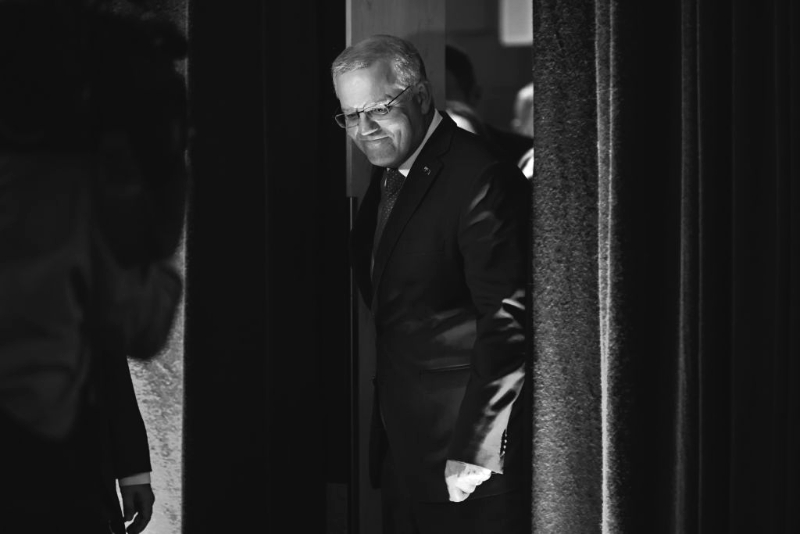Extract from Eureka Street
- Stephen Minas
- 09 June 2022
The Liberal wipeout in inner-city electorates is without precedent in Australian politics. For the Liberal Party, ‘existential crisis’ is not an overstatement. As the party founded by Robert Menzies finds itself in the hall of mirrors, climate policy should be a major focus of critical self-appraisal.

This was a mass extinction event that left the Coalition’s climate dinosaurs largely unscathed, instead taking out multiple actual or purported Liberal ‘moderates’. It’s not hard to see why. Climate regularly polls as a top concern in their former seats. The ‘teal’ independents, Labor and the Greens all identified climate as a key point of difference with Liberal incumbents.
Climate was not the only issue in this election. But in many of the urban seats the Liberals lost, it was a determining factor. For many, the national trauma of the bushfires brought the climate emergency home to Australia. International reports released just before the election campaign and during it underscored the inadequacy of our collective response to this growing threat.
The evidence of this deepening crisis placed the Coalition’s climate record in withering perspective. Overall, the Morrison government acted as a handbrake on climate action. By and large it did not seize the extraordinary opportunities Australia has to prosper in the net-zero economy.
In the face of this, many voters patronisingly dismissed as ‘doctor’s wives’ or the ‘shrieking classes’ decided enough was enough from this government and reached for the ejector button in once-safe Liberal seats.
People hadn’t forgotten the crass vaudeville of senior ministers cradling and passing around a lump of coal on the front bench of Parliament (had anyone forgotten, ‘teal’ advertising was on hand to remind them). What these MPs missed was that people in formerly bedrock Liberal seats want climate policy treated with the deadly seriousness it deserves, not used as the punchline for cheap sideshow stunts.
'The Liberals can learn from this election and do the hard work necessary – on climate and other key policy priorities – to appeal again to the communities that founded the Liberal Party, sustained it for decades and have now rejected it.'
These voters proved unwilling to be fobbed off with risible three-word slogans like ‘technology not taxes’ or with a ‘technology roadmap’ to net-zero that experts and stakeholders declared flimsy. Especially when Coalition colleagues loudly declared that the net-zero target is ‘dead’ or comes with ‘wiggle room’.
They were unimpressed that Australia was one of the few major economies that refused to commit to a strengthened 2030 target. They object to being fed scare campaigns about ‘Labor’s sneaky carbon tax’ and associated nonsense. They look askance at career politicians railing against the evils of market mechanisms. The Damascene conversion of certain politicians to emissions reduction was received as a clear case of too little, too late.
None of this is to discount Australia’s relative success in managing the pandemic and other achievements the outgoing government can claim. But whatever else he did, the prime minister who famously doesn’t hold a hose was more than happy to brandish a lump of coal. The leader who said the vaccine rollout wasn’t a race was in no great hurry to deal with the climate crisis. Voters noticed.
Psephologists can determine whether the Morrison government ‘died of climate failure’ or ‘died with climate failure’. For the new opposition, the bottom line is this: The Liberal Party cannot form government again without winning back at least some of its heartland seats. And it cannot win back these seats without getting real on climate change.
So here’s what the Liberals should do: first, bipartisanship on climate policy. Despite its low primary vote, Labor has a mandate to implement its climate plans. For its own good, the Coalition should take Albanese up on his offer to ‘end the climate wars’.
It should resist the temptation to repeat the wrecking tactics of the Tony Abbott-led opposition. These were electorally successful but fomented a decade of policy chaos which has now boomeranged on the Liberals in spectacular fashion. Such tactics won’t be electorally successful again as the electorate has decisively shifted on climate action.
Second, the Liberals should undertake a thorough study of the science, economics and governance of climate change and consult widely on climate policy. They should pay particular attention to the climate policy success stories and lessons learned of liberal and centre-right parties both locally and internationally.
Third, the Liberals need to compete with their political opponents on climate ambition and the policies to achieve it. There is no law of nature that requires liberal parties to be climate laggards.
This will require the Liberals to ditch the ridiculous taboo on pricing carbon and acknowledge the central importance of market mechanisms to serious climate policy – consistent with longstanding liberal principles.
The Liberals can learn from this election and do the hard work necessary – on climate and other key policy priorities – to appeal again to the communities that founded the Liberal Party, sustained it for decades and have now rejected it.
If they don’t, they don’t. That would be bad for the Liberal Party but also for the country, which needs a strong policy consensus on ambitious climate action in these critical years.
No comments:
Post a Comment